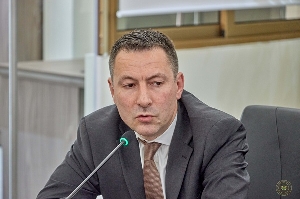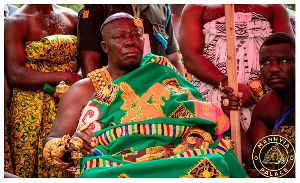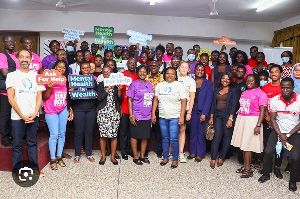The International Monetary Fund (IMF) has expressed satisfaction with the country’s implementation of reforms in the cocoa and energy sectors under the Fund’s US$3 billion Extended Credit Facility programme.
The commendation follows the completion of the second review, which paves the way for the disbursement of an additional US$360 million though this is dependent on the country reaching an agreement with its official bilateral creditors on an MoU consistent with the terms agreed in January 2024.
After a 10-day staff visit to Accra, Stéphane Roudet, the IMF Mission Chief for Ghana, praised the government’s efforts to restore macroeconomic stability and debt sustainability.
“I am pleased to announce that IMF staff and the Ghanaian authorities have reached a staff-level agreement on the second review of Ghana’s economic programme under the Extended Credit Facility arrangement,” Mr. Roudet said in a statement.
The agreement is subject to IMF management approval and executive board consideration once financing assurances have been received from Ghana’s official creditors.
The IMF Mission Chief noted that performance under the IMF-supported programme has been generally strong, with most quantitative targets met and good progress made on key structural reforms.
“The authorities’ policies and reforms to restore macroeconomic stability and debt sustainability while laying the foundations for stronger and more inclusive growth are already generating positive results,” he added.
Addressing the country’s challenges in the cocoa and energy sectors, Mr. Roudet said the IMF team had extensive discussions with the government and the Ghana Cocoa Board (COCOBOD).
“We understand that the government and COCOBOD are committed to ensuring that their activities, such as quasi-fiscal activities, are being curtailed and kept within an envelope that would ensure that their finances are sustainable,” Mr. Roudet reiterated.
In the energy sector, Mr. Roudet acknowledged the significant gap between electricity sales revenue and the underlying costs, noting that the programme was designed to address this shortfall.
“This has been done through implementation of tariff increases last year, significant tariff increases. And this is also being done through implementation of reforms that are really aimed at reducing commercial losses in the sector and reducing technical losses,” he explained.
The Minister of Finance, Dr. Mohammed Amin Adam, echoed Mr. Roudet’s comments, stating that the progress made is an indication of the government’s “shared determination and commitment to return the economy back to the path of macroeconomic stability and inclusive growth”.
Dr. Adam highlighted the successful achievement of the programme’s key performance indicators, including six quantitative performance criteria, three indicative targets and one structural benchmark due at the end of December 2023, as well as four structural benchmarks due at the end of March 2024.
However, the minister acknowledged that more attention is needed in the energy and cocoa sectors.
“For the energy sector in particular, we’ve discussed the possibility of ensuring that the shortfall in the sector is reduced,” he said, adding that the government will conduct a sector-wide audit, strengthen the implementation of the cash waterfall mechanism and review the tariff-setting methodology to reduce discretion and increase transparency.
Regarding the cocoa sector, Dr. Adam said the government will continue to focus on cost-cutting measures at COCOBOD and rationalise the cocoa road sector to make more resources available for completing unfinished road projects.
The successful completion of the second review under the IMF programme will unlock the disbursement of the third tranche of US$360 million, subject to the IMF executive board’s approval, which is expected in June 2024.
“The staff-level agreement on the second review we have secured marks a significant milestone towards unlocking the disbursement of the third tranche of 360 million dollars under the program,” Dr. Adam said.
Business News of Monday, 15 April 2024
Source: thebftonline.com

















